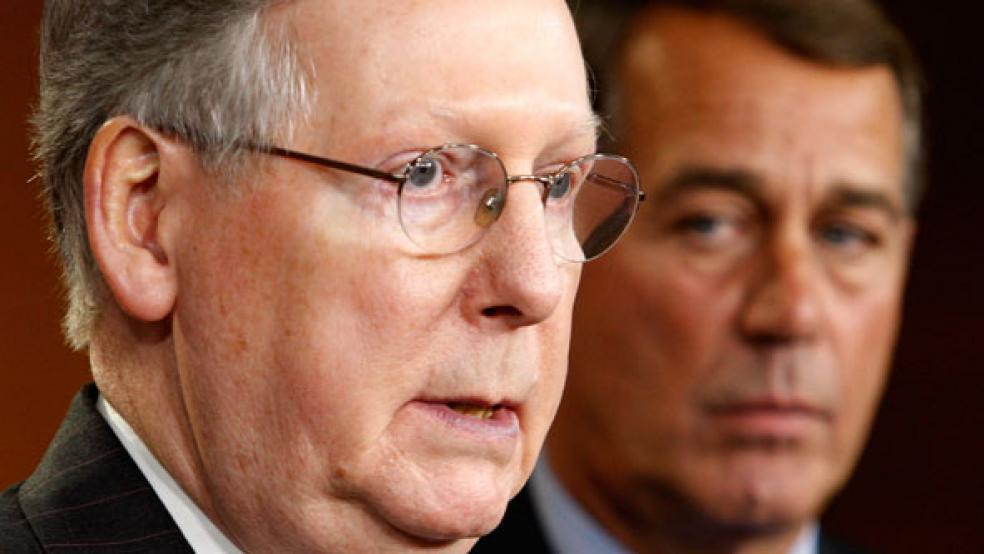President Obama has been pressing congressional Republicans for their alternative to his tax-heavy plan for trimming the budget deficit—but he is not too thrilled with the substantial entitlement cuts proposed on Monday by the GOP.

House Speaker John Boehner and his colleagues adapted their counteroffer to trim deficits by $2.2 trillion over the next decade from the guidance provided by Erskine Bowles, a big name Democrat who was Bill Clinton’s chief of staff and the former co-chairman of Obama’s own National Commission on Fiscal Responsibility and Reform.
“Indeed, the Bowles plan is exactly the kind of imperfect, but fair middle ground that allows us to avert the fiscal cliff without hurting our economy and destroying jobs,” Boehner wrote in a letter co-signed by the House Republican leadership. “If you are agreeable to this framework, we are ready and eager to begin discussions about how to structure these reforms so that the American people can be confident that these targets will be reached.”
Here’s what the GOP offered:
- $800 billion in new revenue by closing “special-interest loopholes and deductions while lowering rates.” That’s half of the revenues sought by Obama through a tax rate increase on the wealthiest two percent of the country and imposing limits on deductions.
- Cut health expenditures by $600 billion, in part through raising the Medicare eligibility age to 67 from 65, according to the Washington Post. Administration officials were willing to consider a total of $600 billion in new spending reductions, on top of $1.8 trillion in savings from last year’s Budget Control Act and the end of the wars in Afghanistan and Iraq.
- Carve $300 billion from mandatory spending programs such as farm subsidies.
- Save $200 billion by applying a tighter inflation metric for government programs including Social Security.
- Trim agency budgets by an additional $300 billion.
The Republican bid is almost a perfect inverse of what Obama tendered, weighted much more heavily toward shrinking expenditures than bumping up revenues. In their letter to the president, the GOP congressional leadership noted it was not worth considering past options they gave for controlling government spending—such as turning Medicaid into a state block grant and Medicare into a voucher-like program—because Democrats would automatically reject them.
“We recognize,” the letter said, “it would be counterproductive to publicly or privately propose entitlement reforms that you and the leaders of your party appear unwilling to support in the near-term.”




